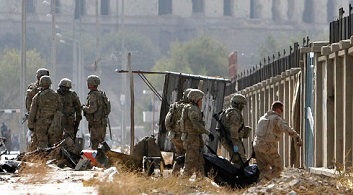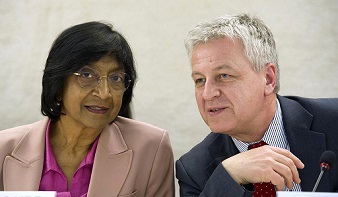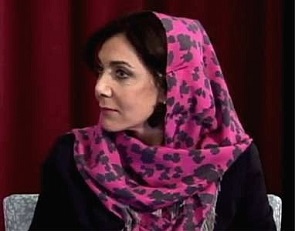Afghan Suicide Attacks - A Stunning Success

U.S. Service Members Killed in Afghan Suicide Bomb Attack:
US soliders, right, carry a body from the site of a suicide car
bomber in Kabul, Afghanistan. (Ahmad Jamshid/AP Photo)
Victory usually goes to the side with the highest dedication. Unfortunately for NATO, that side is the Taliban and al-Qaeda. If one dispenses with all the propaganda, the use of suicide attackers, whether they be bombers or insider turncoats, has objectively been a stunning success. The reality is that an opponent who is willing to die for his or her cause has a significant tactical advantage over a foreign army consisting of troops whose main priority is to survive their war zone tours.
NATO seems befuddled not only by its inability to counter the suicide attacker, but by its failure or refusal to even comprehend its foe. As a result NATO spokespersons revert back to a tired and discredited theme that suicide attackers are uneducated religious fanatics brainwashed in Madrassa schools in Pakistan by unscrupulous mullahs. The truth is that most suicide attackers are educated and apparently consider themselves dedicated patriots combating a foreign invader with the only weapon they have, which is themselves.
Two weeks ago it was announced that Tahir Ashrafi, the leader of the Pakistan Ulema (religious) Council, had formally endorsed the use of suicide bombers against American and NATO forces. He adopted the Taliban saying that, “suicide bombers are the atomic weapons of Muslims.” This ruling emphasizes that the suicide attackers represent mainstream Islam. It is the same with Christianity. In the Book of Judges 16:30, Samson said, “Let me die with the Philistines” and he proceeded to pull down a Philistine temple on himself and on the Philistine rulers. Samson is a hero of the Bible.
One of the difficulties that these attackers present to the West is that the most dedicated and courageous fighters seem to be on the other side. Just as with the Vietnam War, the enemy is dedicated to victory at all cost, while Afghan security forces seem less so.


























